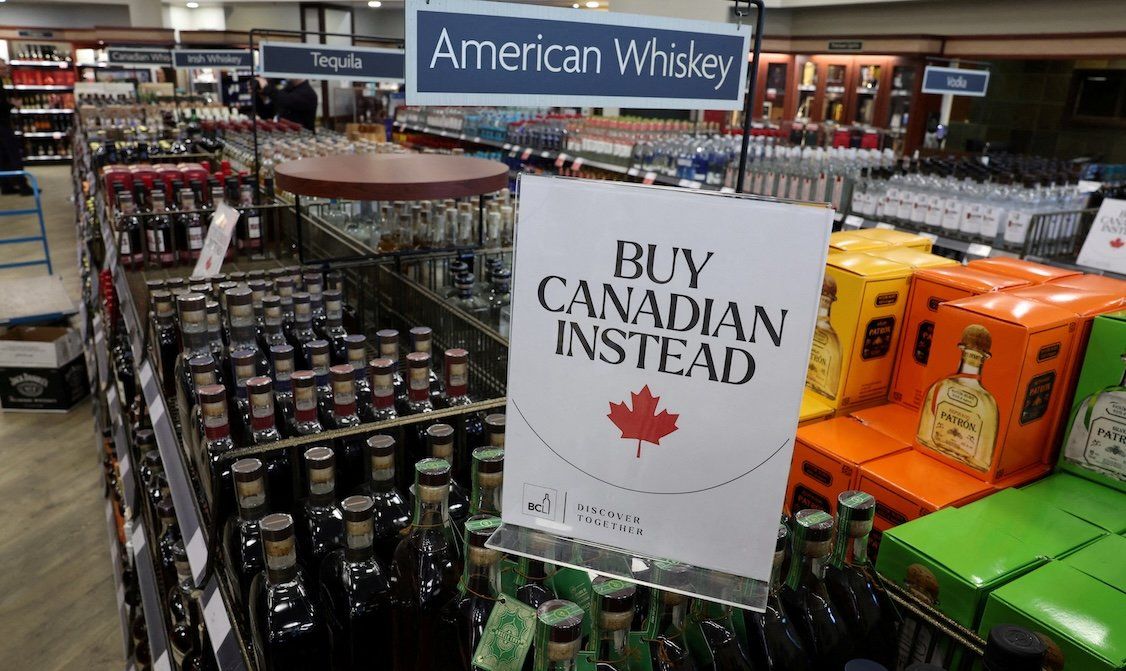Even before Trump’s tariff announcement on Wednesday, Canadian consumers were engaged in a grassroots trade war aimed at hurting American companies.
The “Buy Canadian” movement — which emerged out of Canadian anger at Donald Trump’s trade provocations and annexation threats — is hitting a growing number of American consumer firms. Canadian governments have pulled American liquor, beer, and wine from the shelves, and Canadian consumers have been scorning US products, with retailers delivering the bad news to suppliers. Half of the businesses making efforts to highlight Canadian-made goods reported last month that they had already seen a 50% increase in demand for Canadian products.
The trade tensions have also hit American tourism operators as Canadian snowbirds shift to other sunny destinations, reducing cross-border bookings by 70% this spring and summer. Canadians represent the largest group of international visitors to the United States, so a continued decline could hit US businesses hard.
Canadians made about 20.2 million visits to the U.S. in 2024. A 10% reduction could cost $2 billion and 14,000 jobs, according to a US trade group. There is no reason to think this will end anytime soon. Canadians are increasingly concerned about how they will be treated, and the Trump administration doesn’t seem to mind.
“Canadians will no longer have to worry about the inconveniences of international travel when they become American citizens as residents of our cherished 51st state,” White House spokeswoman Anna Kelly told the Wall Street Journal.
Canadians will be hoping that pressure on US businesses will eventually make the White House change its tune.
